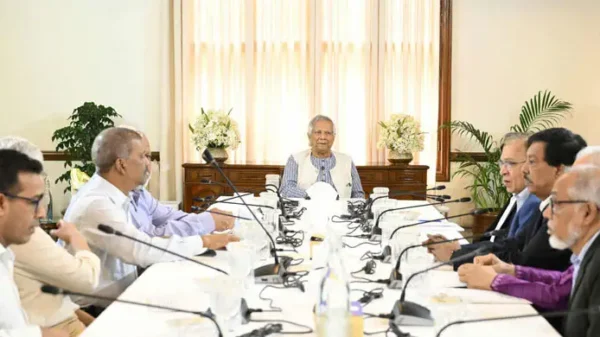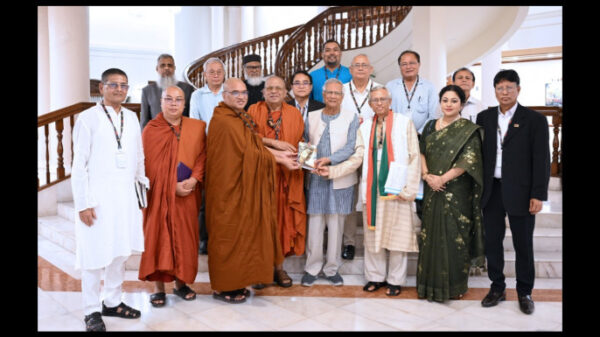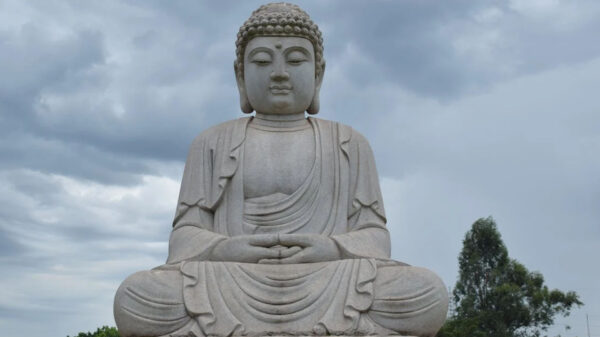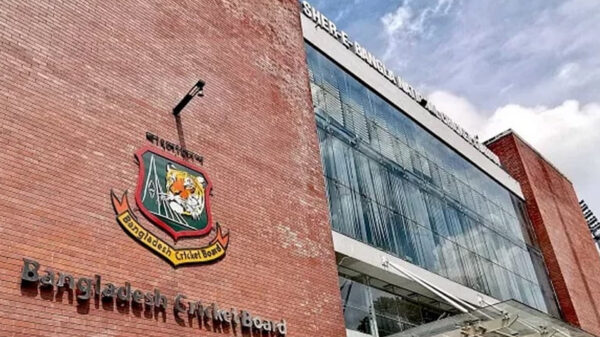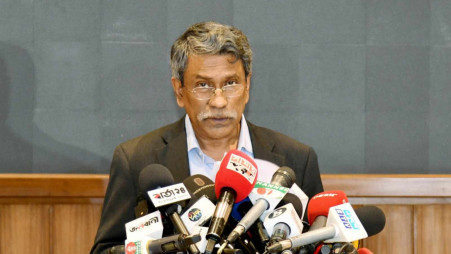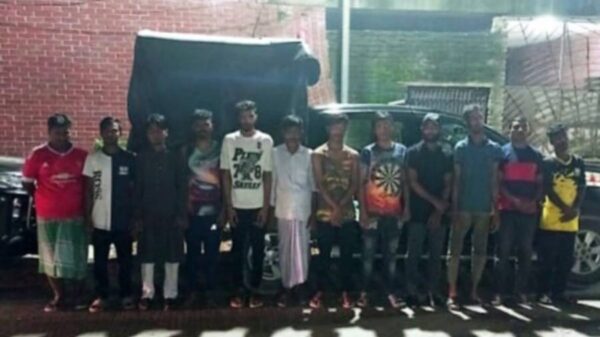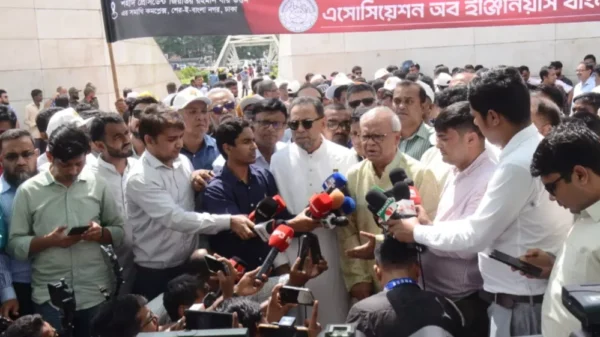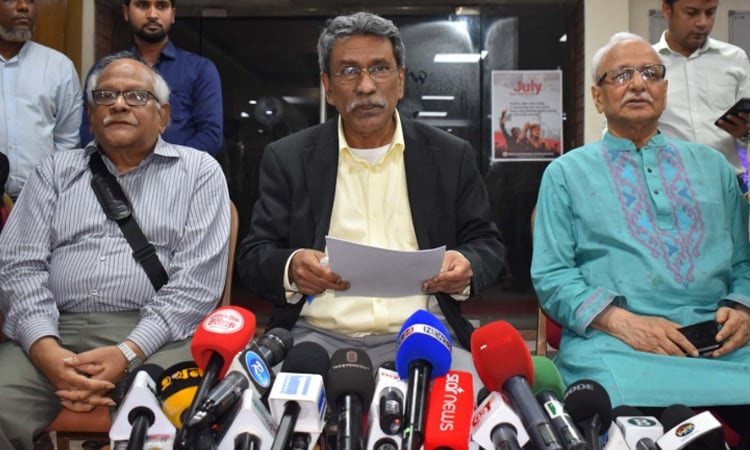Staff Reporter:
The National Consensus Commission (NCC), formed to review and adopt recommendations from six reform commissions tasked with overhauling Bangladesh’s governance structure, has reached consensus on several key areas of reform.
The commission concluded five months of reform dialogues with political parties at midnight on Thursday, reaching consensus on a total of 81 key points.
The second phase of the dialogue resulted in consensus on 19 fundamental issues, with notes of dissent recorded on five of them.
Additional dissenting opinions had also been documented during the first phase of discussions.
The NCC views the ability to bring a diverse range of political parties to the same table and forge agreement on numerous issues through dialogue as a significant achievement.
After concluding the dialogue, NCC Vice-Chairman Prof Dr Ali Riaz said that the outcome is a major success despite “notes of dissent” in some points.
“In most cases, we have reached consensus. In some cases, the parties authorised us to propose revised drafts, which were later accepted,” he said.
The NCC held dialogue with 32 political parties and alliances in two phases. The commission held 44 meetings from 20 March to 19 May in the first phase and 23 meetings from 2 June to 31 July in the second phase.
The parties who joined the dialogue include BNP, Jamaat-e-Islami, National Citizen Party (NCP), Islami Andolan Bangladesh (IAB), AB Party, Liberal Democratic Party (LDP), Gono Odhikar Parishad, Gono Forum, Khelafat Majlis, Jamiat Ulema-e-Islam Bangladesh, Ganosanghati Andolon, Communist Party of Bangladesh (CPB), Jatiya Samajtantrik Dal (JaSaD), Bangladesher Samajtantrik Dal (BaSad), BaSad (Marxist), Nagorik Oikya, Bangladesh Labour Party, and Nationalist Democratic Movement (NDM).
Political analysts and informed citizens believe that if political parties remain true to their commitments, the country could witness a transformative and positive shift in its governance structure.
“It is a great achievement to agree on reforms on so many issues so quickly after a popular mass uprising which was not seen in other countries. We expect many important changes to the governance structure of the country if the political parties maintain their promise,” said Muhammad Miraj Mia, a researcher on political science.
Although there has been consensus on all the key issues and the revised draft of the ‘July Charter’ is imminent, the path to implementing the reform issues is still unclear while doubts remain about the approval of the ‘July Charter.’ Doubts have also arisen about how many political parties will ultimately sign it.
Jamaat-e-Islami, NCP, and IAB have already said they won’t sign the ‘July National Charter 2025’ if it is not given a legal basis. On the other hand, four left-leaning parties, including CPB, boycotted the reform talks in the eleventh hour on Thursday night over the state principles issue.
Meanwhile, protesters under the banner of ‘July Warriors’ continued their demonstration for the second consecutive day at Shahbagh intersection on Friday, demanding immediate finalisation of the July Charter and July Proclamation.
A section of the protestors stayed overnight at the intersection, while others joined them in the morning on Friday, said officer-in-charge (OC) of Shahbagh Police Station Md Khalid Mansur.
Despite rain, the protesters continued the blockade programme at the intersection, disrupting vehicular movement in the area and its nearby areas. However, police dispersed them in the evening.
The initiative for massive state reforms was taken following the downfall of the Sheikh Hasina-led autocratic Awami League regime on 5 August 2024 through the popular mass uprising.
After assuming power, the interim government formed reform commissions, which submitted recommendations. Later, the seven-member National Consensus Commission (NCC) was formed, headed by Chief Adviser Prof Dr Muhammad Yunus.
Consensus was reached on key points of the recommendations following huge discussions in the dialogue between NCC and political parties.
The key areas are– Introduction of the upper house in the Parliament, the amendment to Article 70 of the Constitution; Procedure for appointing caretaker government’s chief; Expansion of fundamental rights; Reform of state’s guiding principles; Restriction on prime minister holding multiple offices; PM’s term limit to 10 years; Decentralisation of judiciary; Chief Justice’s appointment process; Appointments to PSC and some other important state bodies; Presidential pardon powers; State of emergency issue; Formation process of the Election Commission; Formation of Independent Police Commission; Determination of parliamentary standing committee chairmen; and Women’s representation in the Parliament.
Dissent notes were recorded on some issues, including the amendment to Article 70: The presidential election process; Powers and duties of president; Appointments of key constitutional bodies; State guiding principles; Decentralisation of judiciary; and Women’s parliamentary representation.
A few of the decisions taken by the NCC can be implemented directly by the interim government through issuing executive orders or ordinances. However, the majority of the decisions will require parliamentary approval or a referendum or applying any other method.
The July Charter will be finalised with the reform issues. The commission has already placed a preliminary draft, which was rejected by some political parties. The commission decided to place a revised draft.
Ali Riaz said that the revised draft will be presented to the political parties along with a proposal for how to carry out its implementation. “We hope that this will pave the way for the formal signing of the National Charter. Over the next few days, we will focus on finalising the draft accommodating feedback from the parties,” he said.
Once the draft is finalised, the ‘July Charter’ will be signed by political parties and representatives of the government as well as the chief adviser and NCC members.
Prof Kazi Mohammad Mahbobor Rahman of the Department of Political Science at Dhaka University said that the reform issues will play a vital role in changing governance structure.
He cautioned, however, that despite the broad consensus on many issues, underlying tensions are likely to persist—adding that their resolution ultimately depends on the political parties themselves.



